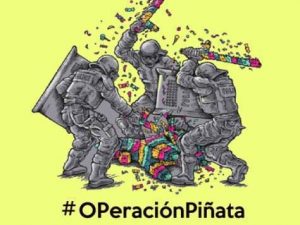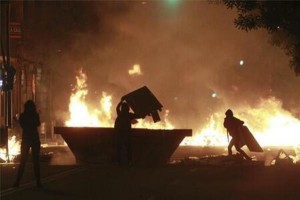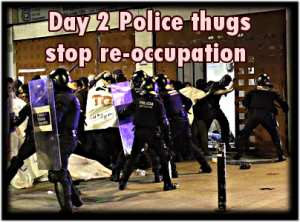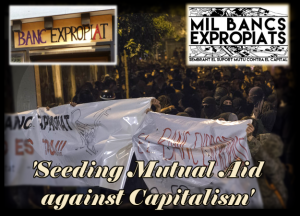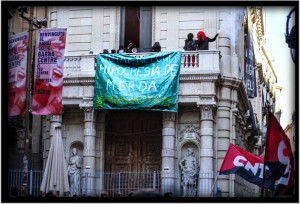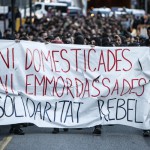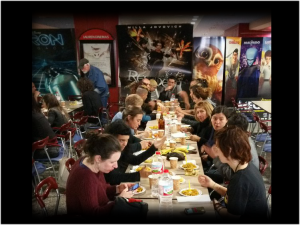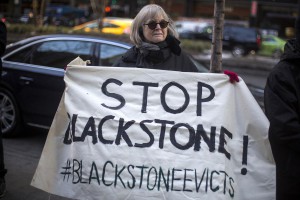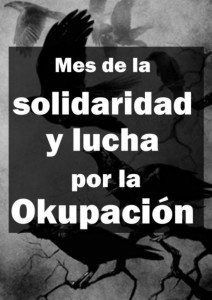 We understand occupation (squatting) as a tool of fight whose main purpose is far from the idea of shaping recreational places. It is an strategy to fight, theoretically and practically, against property as a key pillar of capitalist democracy. Occupation (squatting) is beyond merely logistic.
We understand occupation (squatting) as a tool of fight whose main purpose is far from the idea of shaping recreational places. It is an strategy to fight, theoretically and practically, against property as a key pillar of capitalist democracy. Occupation (squatting) is beyond merely logistic.
It brings partnership among comrades, builds affinity networks and solidarity, as well as create meeting points to discuss, share experiences or to make out some self criticism. Okupation is not and end but a mean that allows us to organize ourselves and conspire. It is a tangible expression of the notion of “Do it yourself”.
The power has done everything to erase any self-management projects since they prove our capacity to organize ourselves outside the system. For that purpose, many strategies have been deployed. From harsh repression; raids, arrests, police farce, to “kinder” strategies based on negotiation. Despite superficial differences, the final end of these strategies is the control and domestication (of our ideas and practices) of social movements.
For some time now, Madrid City Council, a so-called council “of change”, has deployed a warfare of harassment, threat and burnout against squatted social centres. They disguise their real purposes through a deceiver maneuver of fake dialogue, using blackmail to achieve the assimilation of these collectives. What is been sold as an exercise of tolerance and understanding, as an effort to strengthen social networks, is nevertheless an attempt of demobilization and devitalize those who don´t accept their imperatives. [Read More]
